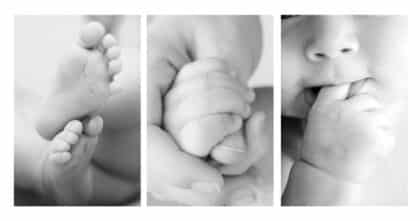With the tumultuous year we’ve just experienced, it’s no surprise that dentists all over the country have noticed a sharp uptick in stress-related dental symptoms in patients such as jaw and headaches, facial pain, and cracked teeth from teeth grinding and clenching. While some people experience relief through exercise and avoiding caffeine and alcohol, others still suffer. If one too many video conferencing glitches have left you wondering: how can I manage facial stress? here are some ideas for how to find relief.
- Be Self Aware
- Mindfully Changing Behavior
- Night/Occlusal Guard
Be Self Aware
Did you know that unless you’re eating or swallowing, your teeth shouldn’t be touching?
The natural resting position of your jaws should be slightly apart with a small space between your upper and lower teeth. Check in with yourself throughout the day to see if certain stressful situations, like social engagements, sports or exercise, or hard mental work cause you to clench or tighten your jaws.
Also assess how your mouth feels when you wake up in the morning. Do you experience any tooth or jaw pain or soreness? Do you have constant dull headaches throughout the day? These might be signs of night grinding [https://www.mouthhealthy.org/en/az-topics/t/teeth-grinding].
Mindfully Changing Behavior
If you’ve discovered that you do tend to clench your teeth in tough moments, you can try learning to modify your behavior throughout the day.
Practice adopting a healthy resting position for your jaws. To do so, place your tongue at the top of your mouth behind your front teeth. (This is the same position your tongue is in when you make the “n” sound.)
Notice that when your tongue is up, your jaws are resting slightly apart. This position relieves unnecessary stress on the teeth when they’re not being used.
You can also practice relaxing your facial muscles so that your jaw hangs loose. Gently bring it back to the above resting position. Repeat periodically throughout the day.
Night/Occlusal Guard
Even with behavior modifications, some people still experience grinding, especially at night. Patients like these might benefit from a night or occlusal guard, which is a mouthguard made of thin plastic that fits snugly over the teeth.
Night guards absorb and evenly disperse the extra pressure grinding at night puts on teeth, which can be as much as twenty times the amount of normal pressure put on teeth by chewing. Night guards can also be worn during the day during activities that bring on grinding.
If you’re interested in using a mouthguard at night, it’s important to use one that’s been custom-fit to your mouth. Using a generic sports mouthguard can introduce new bite problems or exasperate existing ones.
For further reading: Do I Need a Night Guard?
Night Guards–Headache Therapy TMJ in Madison, Wisconsin
If you are interested in being fitted for a night guard or have facial, neck, or back pain you suspect might be linked to tooth grinding or TMJ, please give our office a call today so that we can help you find relief. Affiliated Dentists offers night guards and headache therapy TMJ in Madison, Wisconsin.
How Can I Manage Facial Stress? brought to you by Dr. Mark Gustavson


